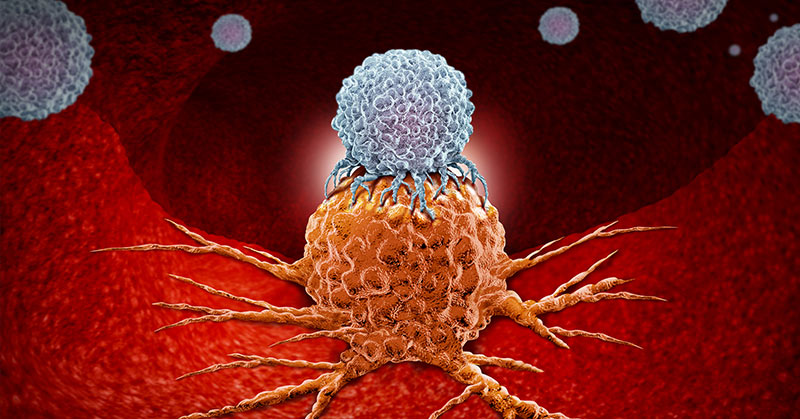This article was originally published on December 9th, 2019, and has since been updated.
Cancer treatments have come a long way since the disease’s discovery. Despite these exciting advancements, there is one unfortunately common cancer who’s treatment options are lagging behind the rest: Pancreatic Cancer.
What is pancreatic cancer?
Pancreatic cancer is – you guessed it – cancer of the pancreas. This is the small organ just behind the stomach that, amongst other things, releases enzymes to help you digest food as well as hormones to regulate your blood sugar. (1, 2, 6)
Cancer in this organ is classically hard to detect. Unless you have a family history and are getting regularly screened for it, pancreatic cancer is often not caught until it is in its later stages. (1, 2, 6) This, coupled with the cancer’s relative unresponsiveness to traditional treatment methods, makes a patient’s outlook rather grim: The five-year survival rate sits at a mere 6%.
A tiny molecule makes a big difference
Current treatment options include surgery, chemotherapy, radiation, or a combination of these, but at the late stage that pancreatic cancer is usually found, these are often ineffective. (1, 2, 6)
In 2019, researchers at Tel Aviv University made an exciting discovery that has the potential to save thousands of lives. The potential answer lies in a small molecule that has shown to have the power to cause pancreatic cancer cells to self-destruct.
This molecule, called PJ34, successfully reduced the number of cancer cells by 90% in a xenographic study. (3, 5)
How it works
Scientists took human pancreatic cancer cells and transplanted them into immunocompromised mice. The mice then received an injection of PJ34 for 14-days straight. One month later, the number of cancer cells were reduced to almost none, with one mouse’s tumors disappearing completely. (3, 4, 5)
“The mice were treated with a molecule called PJ34, which is permeable in the cell membrane but affects human cancer cells exclusively. This molecule causes an anomaly during the duplication of human cancer cells, provoking their rapid cell death. Thus, cell multiplication itself resulted in cell death in the treated cancer cells.” says professor Malca-Cohen Armon, lead researcher at TAU’s Sackler Faculty of Medicine. “We have now harnessed this information to efficiently eradicate human pancreatic cancer cells in xenografts. The current results were obtained using a small molecule that evokes this self-destruction mechanism in a variety of human cancer cells.” (4, 5)
No adverse effects were seen in the mice subjects and the molecule is now being tested by the FDA in preclinical trials before moving on to clinical trials. (3, 4, 5)
Early detection is still key
The molecule PJ34 has the potential to be a game-changer for pancreatic cancer treatment. However, understanding the signs and symptoms and catching cancer as early as possible will dramatically increase your chances of survival. Keep in mind that generally these symptoms often don’t show up until later stages of this cancer, so regular screenings, particularly if you have a family history of the disease, are extremely important.
Signs and symptoms of pancreatic cancer:
- Pain in the upper abdomen that radiates to your back
- Loss of appetite or unintended weight loss
- Depression
- New-onset diabetes
- Blood clots
- Fatigue
- Yellowing of your skin and the whites of your eyes (jaundice) (1, 2, 6)
Pancreatic Cancer: A new hope
While there are still many more tests that the molecule PJ34 must undergo before it can be considered an effective treatment and used regularly in cancer patients, it’s a step in the right direction. Thanks to the researchers at Tel Aviv University and the Sheba Medical Center Cancer Research Center, there is a new hope for those affected by pancreatic cancer.
Sources
- https://www.mayoclinic.org/diseases-conditions/pancreatic-cancer/symptoms-causes/syc-20355421
- https://www.cancer.ca/en/cancer-information/cancer-type/pancreatic/pancreatic-cancer/?region=on
- https://www.eurekalert.org/pub_releases/2019-12/afot-ntt120219.php
- https://www.cancer.org/cancer/pancreatic-cancer/about/what-is-pancreatic-cancer.html

